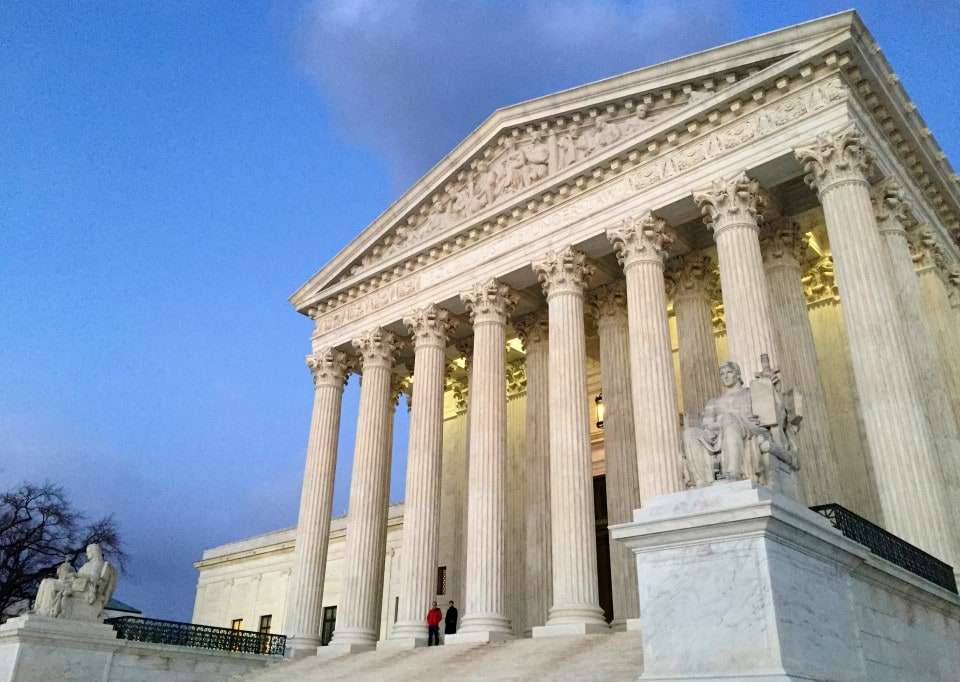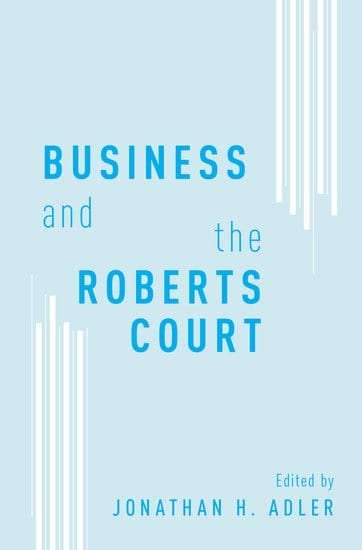The Volokh Conspiracy
Mostly law professors | Sometimes contrarian | Often libertarian | Always independent
Business and the Roberts court without Scalia

The death of Justice Antonin Scalia has already had a profound impact on the Supreme Court, and his eventual replacement will have a profound impact as well. Whether Scalia is replaced by Judge Merrick Garland, a Clinton nominee or one of the Trump 20, the next justice is unlikely to be as conservative, as committed to original constitutional meaning or as focused on statutory text as was Scalia. It's also quite likely that the next justice will not look as favorably on business-friendly arguments either, but this last point should not be oversold.
How will the loss of Scalia affect the court's approach to business issues? For starters, it could have an effect on the court's docket. Scalia was reported to have been more active in identifying and pushing for cert grants than some of his colleagues. He also likely played a key role in the court's decision to stay the Environmental Protection Agency's Clean Power Plan regulations earlier this year. As Tony Mauro discussed in the National Law Journal last week, without Scalia, the court is less likely to continue its push against class-action litigation and in support of mandatory-arbitration clauses.
Now come the caveats. While the loss and eventual replacement of Scalia will matter for business-related cases, the effect may not be as large as some predict. This spring, for instance, James Surowiecki wrote that Scalia "played a key role in moving American law in a more corporate-friendly direction," adding that "many of the Roberts Court's most important business cases were decided by a 5-4 margin." These are fair points, but I also think that Surowiecki overstates his case.
Here are three reasons to be careful about overstating the effect on business interests of replacing Scalia.
First, Scalia was not a reliable "pro-business" vote. While Scalia was a pro-business stalwart in cases involving the availability of novel legal theories or assertions of implied causes of action, he was quite skeptical of business arguments in other contexts. Scalia was fiercely critical of the argument that punitive damages could be so excessive as to violate the Due Process Clause, and he was increasingly lukewarm on Dormant Commerce Clause arguments that business groups liked to press against state-level regulations. And while Scalia could write stern opinions disciplining agency overreach, as in Michigan v. EPA, he was also known to give agencies the occasional gift, as in American Trucking Assns v. EPA and City of Arlington v. FCC. So while Scalia voted with business interests more often than he voted against them, he was hardly a consistent pro-business voice.
Second, many of the Roberts court's significant "pro-business" rulings were decided by overwhelming margins. Just think of Riegel v Medtronic, in which an 8-1 court found that federal law preempted certain tort claims against medical device manufacturers; American Electric Power v. Connecticut, in which a unanimous court found that suits alleging that climate change constitutes an interstate nuisance under federal common law are displaced by the Clean Air Act; and Sackett v. EPA, in which a unanimous court rejected the federal government's claims that landowners could not challenge administrative compliance orders issued under the Clean Water Act. In these cases, and many others like them, the claims pushed by business groups were sufficiently strong to win overwhelming majorities on the court, and there is no reason to think that similar cases won't be decided in much the same way once a ninth justice is confirmed.
Third, even with Scalia still on the court, business did not always fare as well as advertised. The court sided with environmentalists over the Bush administration and business interests to decide that the EPA had the authority to regulate greenhouse gases over an angry Scalia dissent in Massachusetts v. EPA, and gave the business community much less than it wanted in UARG v. EPA.
This past term, business lost several cases in which Scalia's vote did not make - or would not have made - a difference. In Campbell-Ewald v. Gomez, for instance, the court decided 6-3 that an unaccepted settlement offer of the maximum statutory penalty does not moot a plaintiff's. The business community was disappointed in this decision, and Scalia was in dissent.
It's also clear that had Scalia not died in February, business would have still lost some of the big-ticket cases from this term. Consider the court's decision to narrow Wal-Mart v. Dukes in Tyson Foods v. Bouaphakeo. This decision was a big win for plaintiffs' lawyers and a significant loss for corporate defendants. While there's little doubt Scalia would have taken the pro-business side in this case (he wrote Wal-Mart v. Dukes), it would not have made a difference, as Tyson Foods was decided 6-2.
All this is to say that the death and replacement of Scalia matter, but not necessarily as much - and not necessarily in the same way - as some would predict.
This and related issues will be discussed at the Sept. 23 conference on Business in the Roberts Court at Case Western Reserve Law School. For more, I also shamelessly recommend my most recent book, "Business and the Roberts Court," available on Amazon.



Show Comments (0)